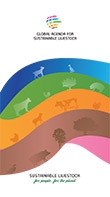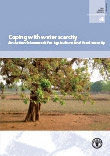Publications

Les ressources phytogénétiques constituent la base de la sécurité alimentaire, du soutien aux moyens d’existence et du développement économique, et représentent une des composantes prioritaires de la biodiversité. Le Deuxième Rapport sur l’état des ressources phytogénétiques pour l’alimentation et l’agriculture dans le monde démontre le rôle central que la diversité phytogénétique continue de jouer en façonnant la croissance agricole face au changement climatique et aux autres défis liés à l’environnement. Il se base sur les informations rassemblées à partir des rapports nationaux, des synthèses régionales, des études thématiques et des publications scientifiques, qui décrivent les principaux résultats atteints dans ce secteur au cours de la dernière décennie et identifient les lacunes et les besoins cruciaux qui devraient être abordés avec urgence.
Le Deuxième Rapport fournit aux décideurs les bases techniques pour la mise à jour du Plan d’action mondial pour la conservation et l’utilisation durable des ressources phytogénétiques pour l’alimentation et l’agriculture. Il vise également à attirer l’attention de la communauté mondiale pour qu’elle définisse les priorités favorisant la gestion efficace des ressources phytogénétiques à l’avenir.

The Agenda is a partnership of livestock sector stakeholders committed to the sustainable development of the sector. With global population projected to reach 9.6 billion in 2050, the livestock sector's role in sustainable food and agriculture will continue to increase. To be sustainable, livestock sector growth needs to simultaneously address key environmental, social, and economic challenges: growing natural resources scarcity, climate change, widespread poverty, food insecurity and global threats to animal and human health.
The Agenda builds consensus on the path towards sustainability and catalyzes coherent and collective practice change through dialogue, consultation and joint analysis. The partnership unites the forces of the public and private sectors, producers, research and academic institutions, NGOs, social movements and community-based organizations, and foundations.

This report aims to provide a conceptual framework to address food security under conditions of water scarcity in agriculture. It has been prepared by a team of FAO staff and consultants in the framework of the project `Coping with water scarcity: the role of agriculture?, and has been discussed at an Expert Consultation meeting organized in FAO, Rome in December 2009 on the same subject. It was subsequently edited and revised, taking account of discussions in the Expert Consultation and materials presented to the meeting. The document offers views on the conceptual framework on which FAO's water scarcity programme should be based, proposes a set of definitions associated with the concept of water scarcity, and indicates the main principles on which FAO should base its action in support to its member countries.

